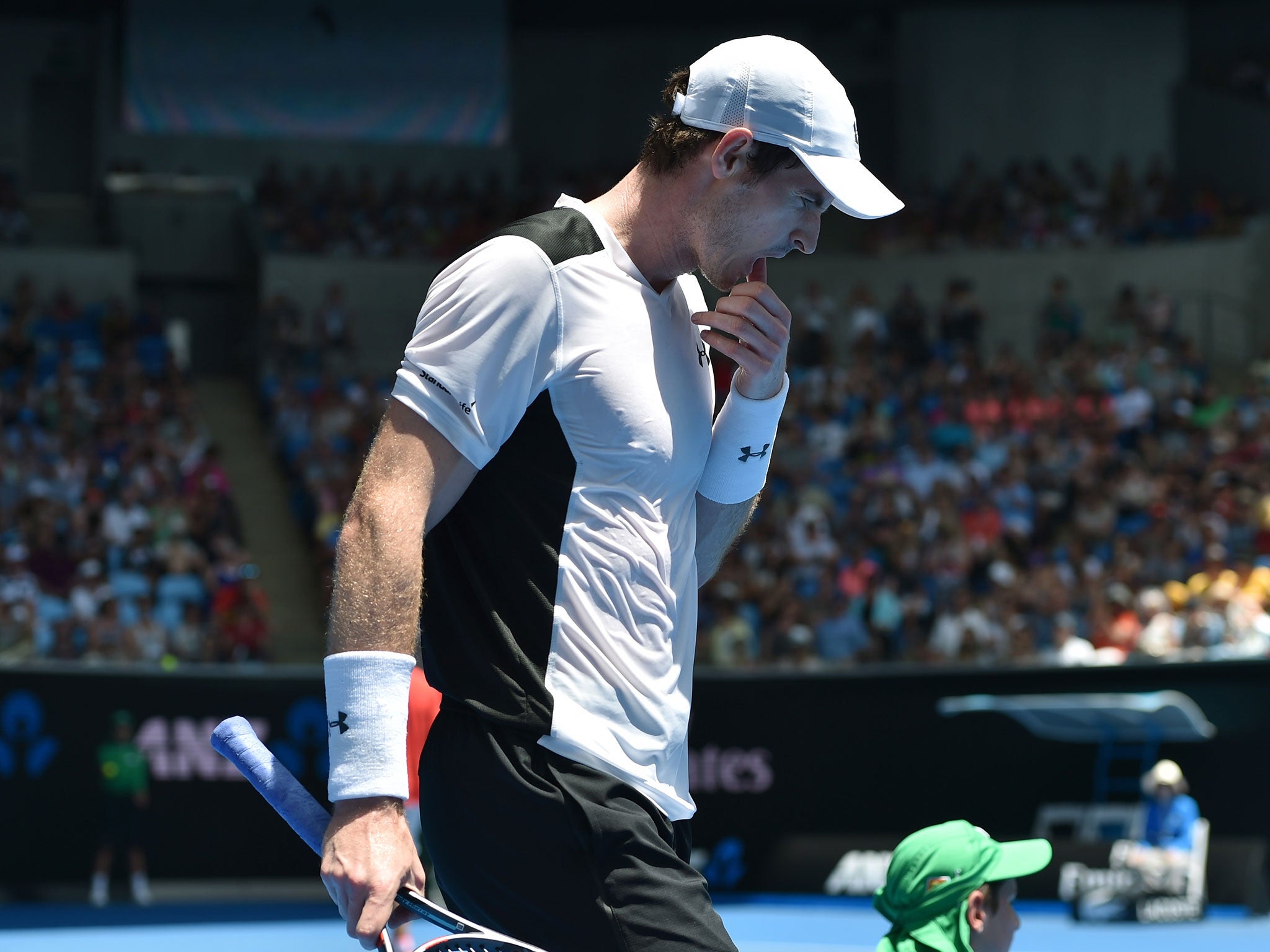Andy Murray claims tennis is not educating players about match-fixing as Roger Federer wants suspects named
Murray believes young players lower down the rankings are more exposed to match-fixing and need to be educated over the dangers of it

Andy Murray has warned that young and emerging tennis players need a better education to prevent match-fixing from infecting the game after the recent allegations of widespread corruption.
An investigation by the BBC and Buzzfeed has resulted in a core group of 16 players being identified to involved in a potential match-fixing scam, with the Association of Tennis Professionals and the Tennis Integrity Unit believed to have been informed of these players from as early as 2007.
While the ATP have denied ignoring the allegations and failing to take action given that eight of these players are in first round action at the Australian Open this week, Murray believes that more needs to be done lower down the ranks in order to prevent those who could be lured in by the financial rewards that match-fixing offer from becoming corrupt.
Speaking after his 6-1, 6-2, 6-3 victory over 18-year-old German Alexander Zverev, Murray said: “I’ve been aware of the issue since I was quite young. I think when people come with those sums of money when you’re that age, I think sometimes people can make mistakes.
“I do think it is important from a young age that players are better educated and made aware of what they should do in those situations and how a decision [to match fix] can affect your career and the whole sport.”
Tennis chiefs have been accused of living in denial within the sport after ATP president Chris Kermode and Tennis Integrity Unit director Nigel Willerton both played down the severity of the allegations and claimed that they cannot take action “without evidence”.

Murray though feels that his own inexperience of being taught about the perils of match-fixing is an example of what the sport is not doing enough of, and believes that future tennis professionals can benefit from being educated on the matter in their teenage years.
“I don’t think [education] is done very well,” Murray added. “I think you should be learning of [corruption] when you’re 15, 16, 17 years old. Because when you come on the tour, players need to have the right people to support them.”
Murray’s call for an improvement in match-fixing awareness comes after the 17-time Grand Slam champion, Roger Federer, called for the names of those in the group of 16 suspected of match-fixing to be made public.

"I would love to hear names," Federer said on Monday. "Then at least it's concrete stuff and you can actually debate about it.
"Was it the player? Was it the support team? Who was it? Was it before? Was it a doubles player, a singles player? Which slam?
"It's so all over the place. It's nonsense to answer something that is pure speculation."
It was also revealed on Monday that world No 1 Novak Djokovic had turned down an indirect £110,000 payment in 2006 to lose a first round match at the St Petersburg Open, a tournament that the Serbian would eventually withdraw from before it started.
"I was not approached directly," Djokovic said after his first round victory over Hyeon Chung. "I was approached through people that were working with me at that time, that were with my team. Of course, we threw it away right away. It didn't even get to me, there was nothing out of it."
Join our commenting forum
Join thought-provoking conversations, follow other Independent readers and see their replies
Comments
Bookmark popover
Removed from bookmarks